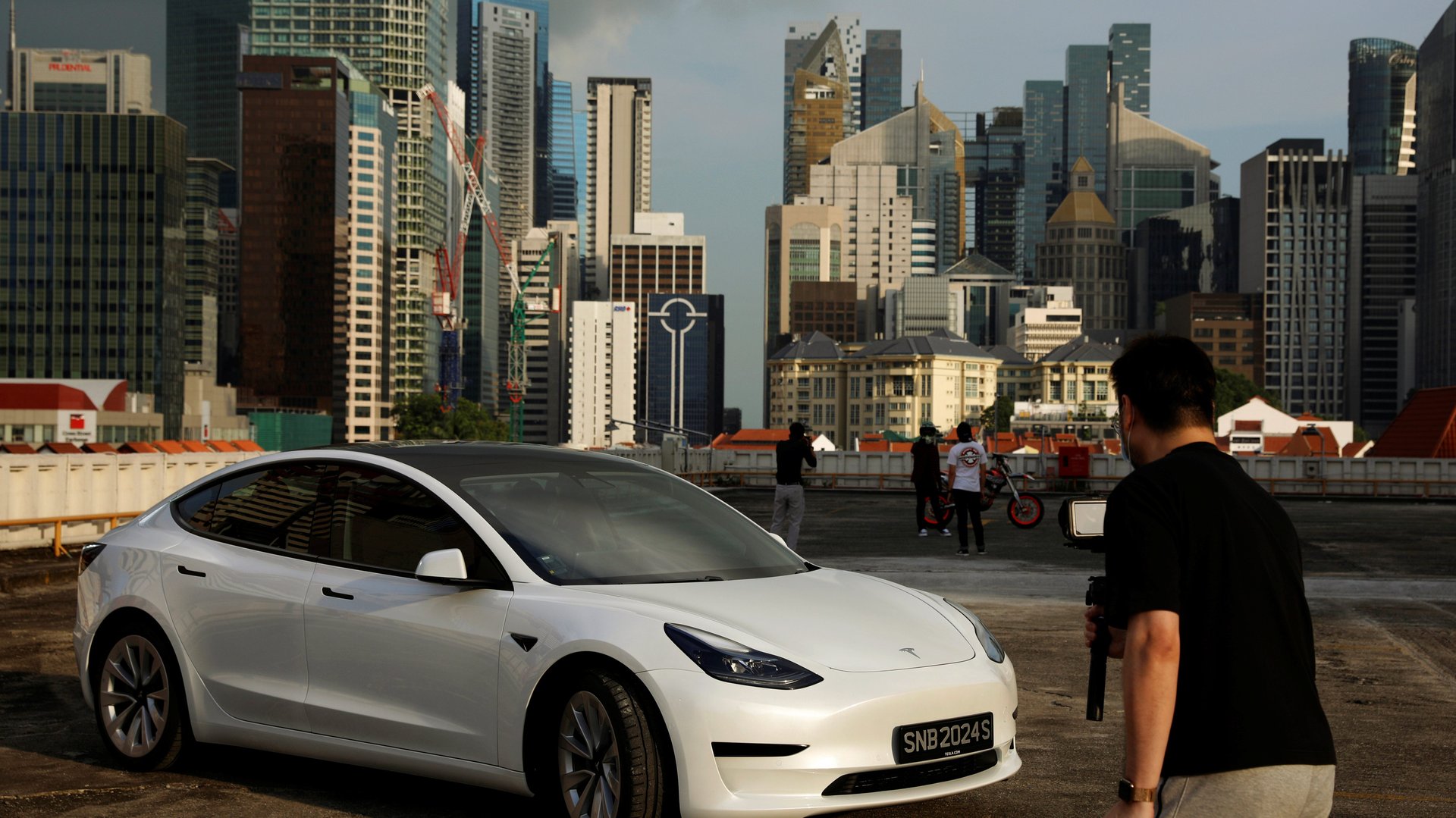Singapore is snapping up Teslas that cost three times as much as in the US
A steep price tag isn’t deterring Singaporeans from buying Teslas.


A steep price tag isn’t deterring Singaporeans from buying Teslas.
The electric vehicle company sold 487 cars in Singapore between July and September, new car registration data from the country’s Land Transport Authority (LTA) show. While some of those sales are likely a result of Tesla clearing order backlogs, it still denotes a substantial increase from the 30 Teslas sold in the first six months of 2021. The company first began taking direct orders for the country in January.
Those orders are even more notable given that the cheapest Tesla—the Model 3 sedan—costs nearly S$200,000 ($148,300) in Singapore, compared to $40,000 in the US.
“I bought the car because I’m a supporter and shareholder of the company,” Tim Shim told Reuters. The software engineer reserved a Model 3 five years ago when Tesla opened pre-bookings worldwide, but received it just recently as Tesla only began selling in the country this year.
Tesla still only holds a sliver of the domestic car market, at 1.4% of new car registrations in Singapore so far this year. Market leader Toyota has a 20.4% share.
Why is Tesla so expensive in Singapore?
The high cost of Teslas is an issue unique to Singapore.
The small island nation is one of the most expensive countries in the world to own cars because of a large ownership levy enforced by the government in an attempt to reduce congestion on Singapore’s limited road space.
Buyers also have to pay sizable excise duties and registration fees. Moreover, car owners have access to only a specific number of certificates of entitlement (COEs)—a requisite document for car ownership. The price of these certificates can be astronomical since as their allocation is determined via bidding.
Owning electric cars like Tesla in Singapore is getting easier
Since beginning deliveries on orders in July, Tesla has become the best-selling electric vehicle (EV) in Singapore. But the company and the country have had their differences in the past.
In March 2016, a Tesla owner in Singapore who imported a Model S from Hong Kong challenged being subjected to a S$15,000 ($11,128) carbon tax, and Tesla CEO Elon Musk even called Singapore prime minister Lee Hsien Loong to discuss the matter. In May 2018, Musk tweeted that Singapore government is “not supportive of electric vehicles.” In January 2019, he once again criticized the city-state for being “unwelcome.”
“We are not interested in a lifestyle. We are interested in proper solutions that will address climate problems,” Masagos Zulkifli, then Singapore’s minister for environment and water resources, said of Tesla in August 2019. Instead of making private cars go electric, the nation has been prioritizing making mass transit green.
Singapore also cited parking and charging constraints as reasons it thought EVs were not the best solution for climate change in the country of 6 million.
However, the country has since relaxed its attitude and said it will make EVs “easier to buy and own.” It is trying to improve infrastructure by installing hundreds of charging stations in public carparks, and offering grants to install these systems across private residences, too.
Newly introduced government rebates could also bring the cost of owning an electric vehicle down by almost $45,000 for future buyers.